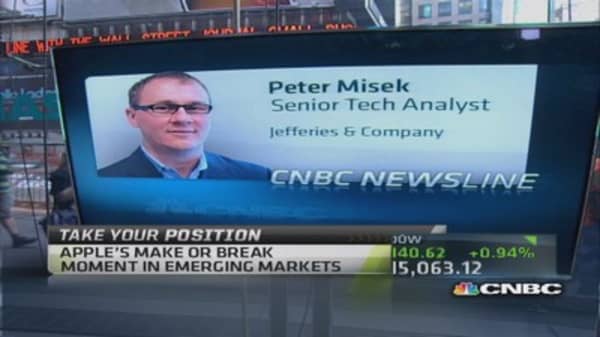The bulls charged down Wall Street on Monday, with the Dow Jones industrial average posting its best day in two months, lifted by upbeat economic data from China and despite ongoing worries over Syria.
"The good China data somewhat takes the hard landing fear of China off the table at least for now," said Brian Kelly, a professional trader, after China reported its exports grew by 7.2 percent in August, exceeding market expectations for a gain of 6 percent, while consumer inflation held steady.
In turn, the Dow soared 140.62 points, or 0.94 percent, to close at 15,063.12. The S&P 500 jumped 16.54 points, or 1 percent, to finish at 1,671.71, while the Nasdaq climbed 46.17 points, or 1.26 percent, to end at 3,706.18. The Nasdaq 100 rallied to hit its highest level since November 2000.
(Read more: Mom and pop stilldon't believe in this market)





